STRAIGHTtalk: With Kathleen Heideman

Kathleen Heideman, poet, painter, and president of the Save The Wild U.P. non-profit organization. (photo Ron Caspi)
Brian Cabell interviews poet and painter Kathleen Heideman, who’s also the president of Save the Wild UP, and the daughter-in-law of Fred and June Rydholm. Kathleen explains how a Wisconsin farm girl ended up in Antarctica for two months and now finds herself enchanted by the Yellow Dog Plains.
BC: What were you like as a little girl?
KH: I was very solitary. I would very happily spend hours in the woods when I wasn’t doing my barn chores or my homework. I was always running away to find a spot where I could be uninterrupted for reading or making drawings or writing. I was sure I was going to be an artist from my earliest age.
BC: Did you have friends?
KH: Not that many. I was kind of introverted but it wasn’t entirely my choice. We were isolated on our farm, I think, and I didn’t really relate to some of the neighbor kids at that age.
BC: Did you do anything “crazy” as a teenager?
KH: Absolutely not. My parents got off so easy. I saved it all for my thirties.
BC: So now I’m intrigued. What did you do in your thirties?
KH: Well, in my thirties, I announced that I was going to Antarctica. I went down there for two months to be an artist in residence for the National Science Foundation.
BC: All right, that’s “crazy” in a good way, but let’s get back to your youth. What did you think of boys when you were fifteen?
KH: I felt sorry for them mostly. (Laughs) Because at fifteen or sixteen, most boys emotionally are still twelve or thirteen, and it was a bad match with me.
BC: Did your parents try to guide you toward a profession?
KH: My mom had a degree in library science so she wanted me to become an English teacher probably. She read poetry to me at an early age, things like that. My father raised me to be his eldest son because I was the oldest daughter, and my brother was about four years younger. My brother actually ended up taking over the farm but I was the one my dad taught everything to. He doesn’t really remember it but he really trained me the way a farmer would train his son. I was trained in animal husbandry and I was the one in the middle of the night helping my father pull a calf out of a cow when it was having trouble.
BC: Were you a happy girl?
KH: I was happy but some people thought I wasn’t happy because I was solitary. In third or fourth grade, our farm was right across from the school yard, and my mother would look across the road and see me playing by myself. Literally sitting outside all alone, and she was heartbroken. She thought I was sad but I remember it as me making microscopic investigations of the world, like looking at pebbles on the ground. I have no bad memories at all of that time. (Laughs)
BC: What got you into poetry?
KH: I had an amazing number of teachers who encouraged and helped me. I’ve been blessed with great teachers all my life. Some of them I still think of as my teachers decades after I’ve had them. And then others have become my friends who continue to guide me and my thinking.
BC: Is poetry a struggle for you?
KH: Editing is a struggle. The writing part isn’t. Words are always there swirling around and I’m grabbing them and writing them down. That’s not hard. That’s a joy. But the problem is bringing your art to a finished place where you want to share it with everybody. That’s difficult. And the other problem is that I’m always interested in everything—in painting as well. I do watercolors. (She recently had an exhibition at Sweetwater Café)
BC: What were your first impressions of the U.P. when you arrived?
KH: I fell in love with Marquette County specifically but I find the whole U.P. beautiful. I love the fact that it’s relatively unpopulated. I’m always drawn to places on the map where there aren’t buildings or towns or roads. That’s just my mental landscape.

Heideman’s paintings capture the beauty of the environment she strives to protect and preserve. (photo by Ron Caspi)
BC: You’re Fred Rydholm’s daughter-in-law. What was he like?
KH: I actually met Fred and June, my in-laws, before I met their son (her husband is Dan Rydholm) and I fell in love with them before I ever met him. They’re delightful humans of the highest caliber. And Fred, what you remember about him is his storytelling. You could spend a whole day with him and realize that all you did was ask questions, and then he’d talk. He could make anything sound interesting and he wanted to make things connect. It’d be interesting when he’d meet someone because immediately he wanted to know where you lived or who you were married to or what your father did. He had to make some connection. He was endlessly curious.
BC: Was he concerned about the environmental future of the U.P?
KH: Oh yes, he was very opposed to sulfide mining. He believed, as I do, that the Yellow Dog Plains is a very special place, and it was the worst possible spot to put a mine. He loved it because it’s remote and because there are a lot of places without humans. It’s still a wild place, even with the mine out there.
BC: There’s a perception on the part of many that environmentalists are somewhat out of touch with reality, that they can’t deal with the idea that we need jobs here, we need money.
KH: There’s also a perception by many that those who are only concerned with jobs are out of touch with reality, and the reality is that we are having a great number of serious environmental issues that the entire world is going to have to deal with. The changes that are taking place as a result of climate change and pollution are turning this into a world that nobody will want. The reality that the economic world has lived in for the last 200 years has been one of looking at every natural resource as something to be exploited for personal benefit. Everything is related. What you do in your own backyard affects the rest of the world.
BC: Let’s get back to personal issues. Personal wealth doesn’t seem to be a major concern of yours.
KH: My parents taught me a work ethic that, day-in, day-out, involved doing your chores. You had to scrabble for everything you got. You know, farming life is a really hard way to grow up. I never am not working but I no longer feel that I have to get some arbitrary amount of money to be happy. Dan and I don’t go on fancy vacations, we don’t have fancy vehicles. I see a lot of people working hard so that they can buy the 40 thousand dollar vehicle. I don’t see anything rational about that.
BC: You don’t have any children. Why not?
KH: I did a lot of babysitting as a kid and I realized I didn’t really enjoy it. I didn’t have any maternal instincts. What I now think, with my work as a steward of the land that my in-laws put together to protect, is that environmental stewardship is kind of a maternal urge. The interesting thing about it is I’m not just thinking about my generation or my children’s generation, I’m thinking about what happens 300 years from now. It’s really freeing to get out of your own time frame.

Watercolor painting of waves at Scoville Point in Michigan’s Upper Peninsula by Kathleen Heideman. (photo courtesy of Kathleen Heideman)
BC: Are you a church-goer? Do you have spiritual beliefs?
KH: I was raised a Catholic, and even now, I can get a little nostalgic about the window dressing and the ceremonies of the religion, but I fell away from it. If women had been able to become priests when I was an adolescent, I think I might have pursued that profession at that time. It allowed you this kind of creative space, I thought, and you could have a life where you “thought” about things for a living. Wow! That would be amazing. But after going to art school, I sort of discovered that the physical world, the creative world, the natural world…that’s where I get my understanding of God. The more I read about science, the more I feel it gives me my spiritual insights.
BC: What do you want to do with this next phase of your life?
KH: In my past, I’ve marked my life with artist’s residencies. I did them with the National Park Service, in Antarctica, with the National Forest and on public lands. I was operating almost as an interpretor. I’m still endlessly curious about places but I think maybe that was just an excuse to travel and see things. Now, the new thing that I’m realizing is that I could take any one foot by one foot square of dirt in the Yellow Dog Plains and study it for the rest of my life, and never fully understand it. So I think the next phase of my life will involve me trying to understand one place deeply rather than one hundred places superficially.
BC: Thank you, Kathleen.








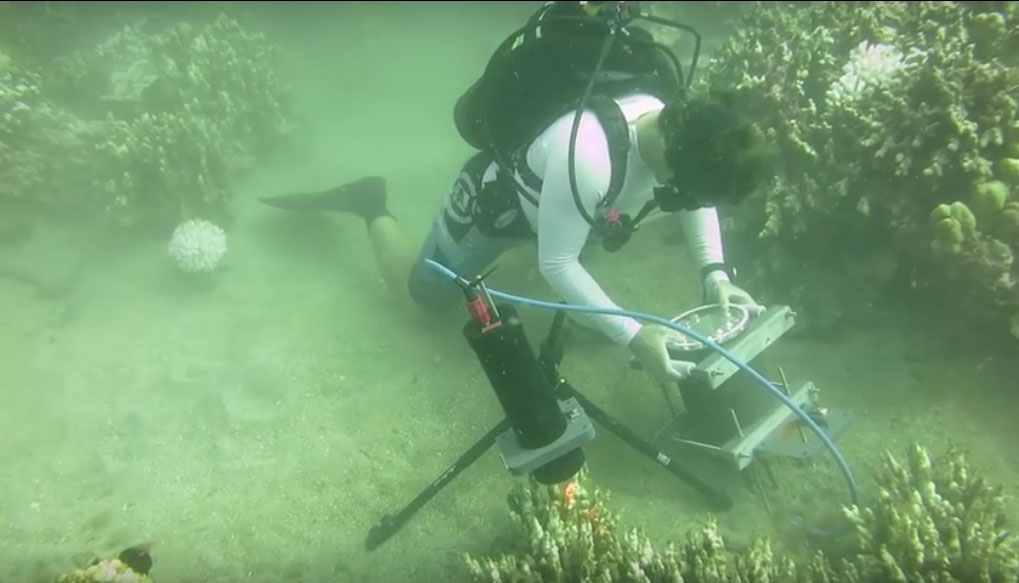
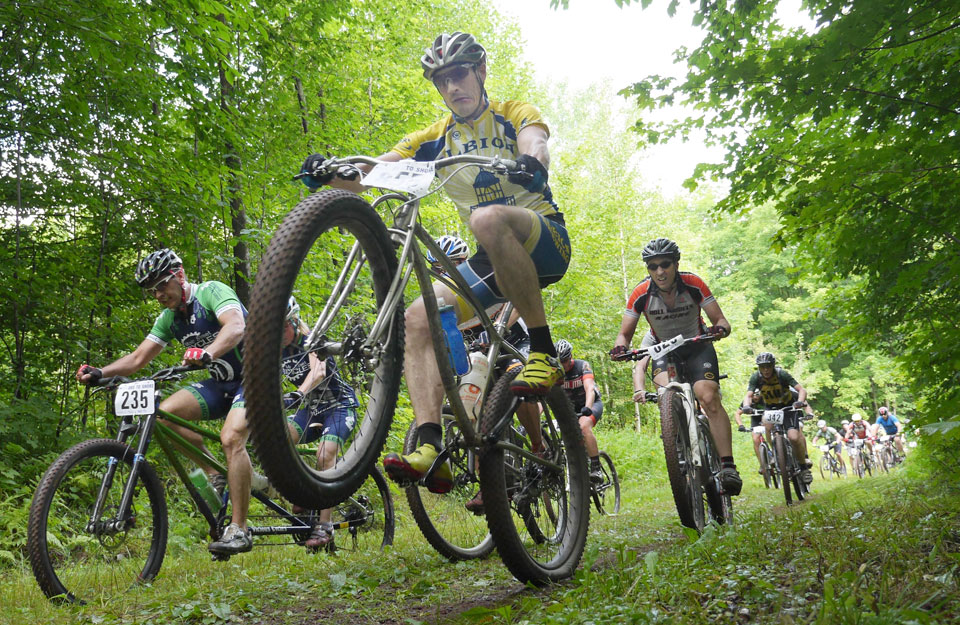
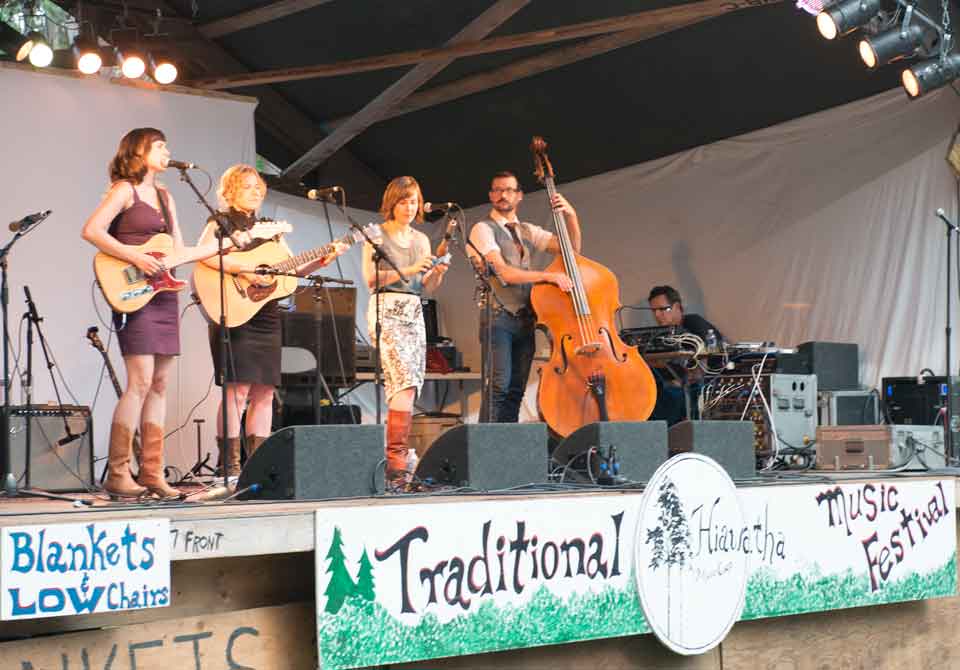
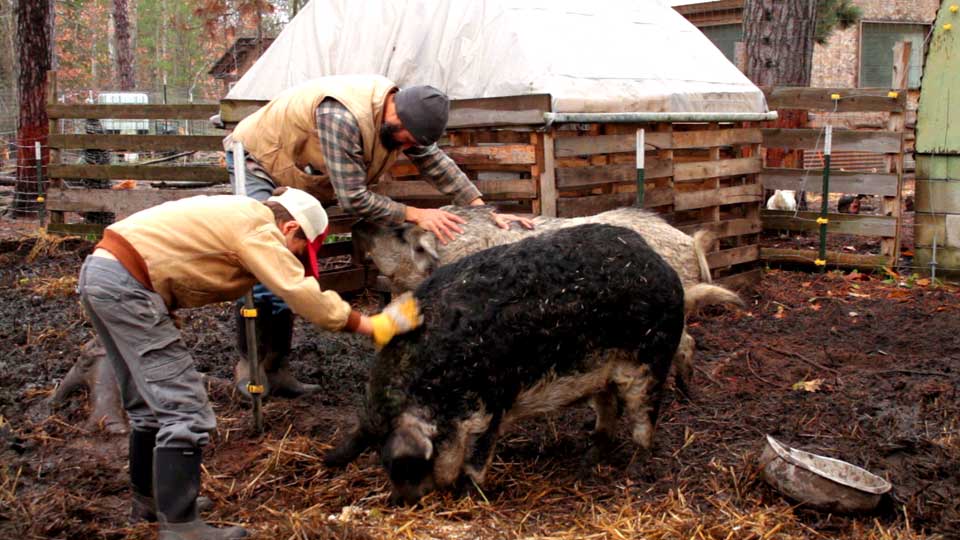
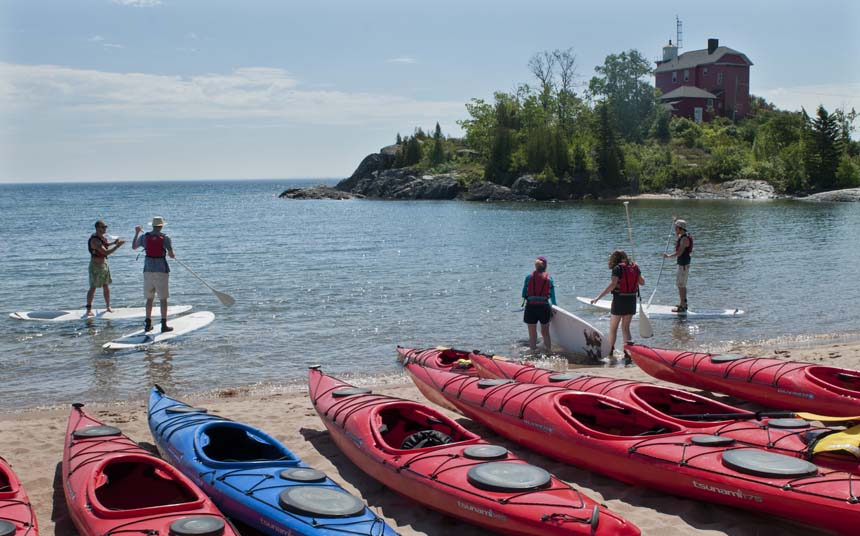
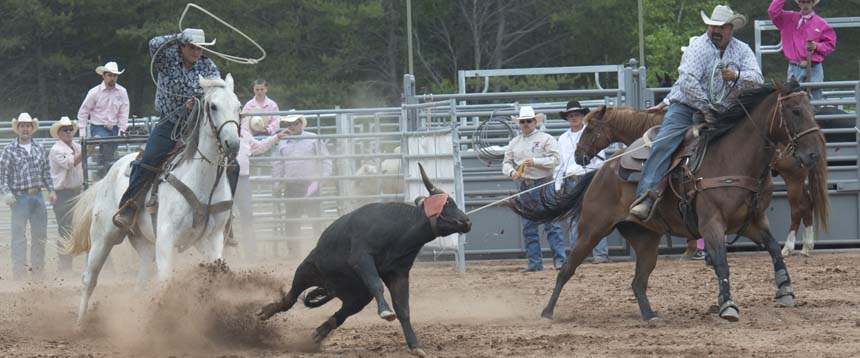
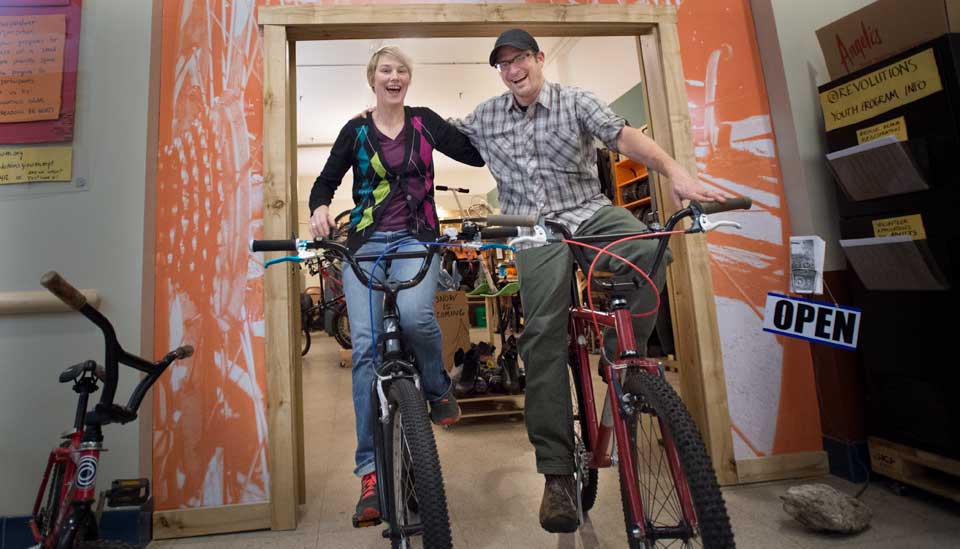
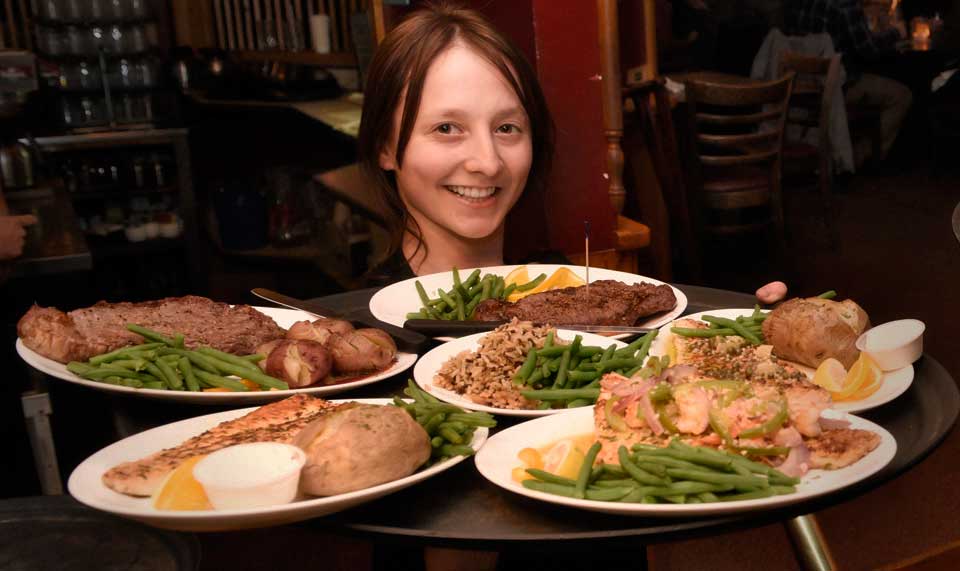
You must be logged in to post a comment Login